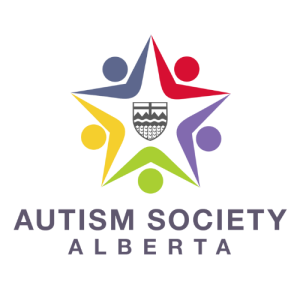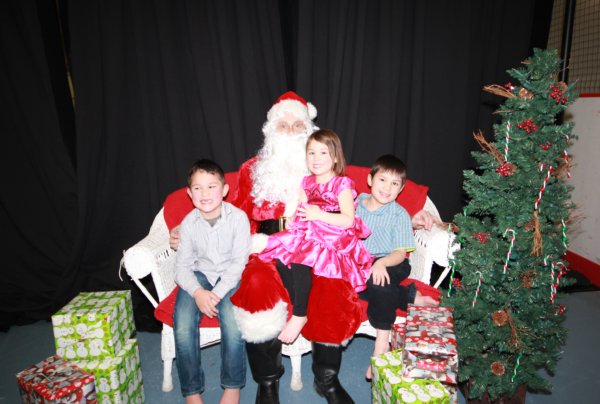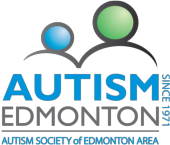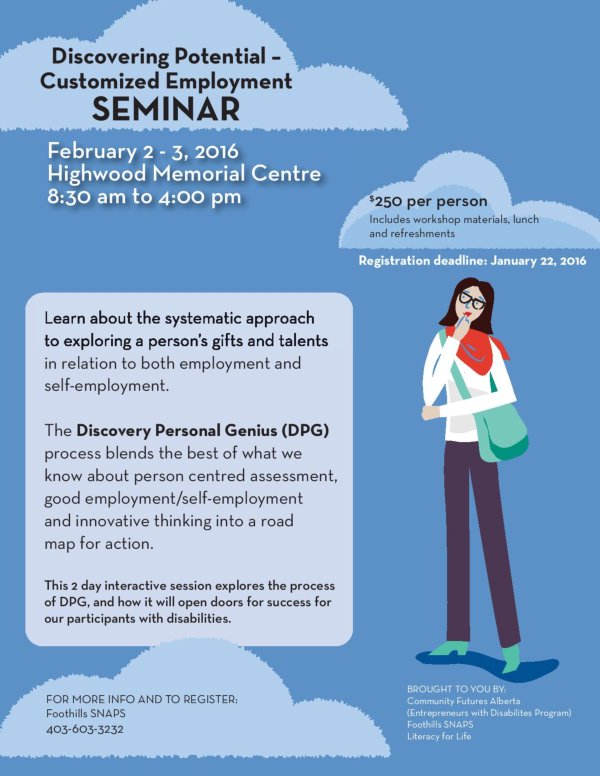Latest News from the Fort McMurray Autism Support Group
Fort McMurray Autism Support Group held an Autism Family Christmas Party sponsored by Sands Carpet One, Unifor Local 707A and the employees at Fort McMurray Kenworth. We also had donations from Walmart and Superstore. The Autism Family Christmas Party was held at the Syncrude Sports and Wellness Centre on December 20th. There were two bouncy castles, a craft table set up for making Christmas decorations, and snacks, including home made cupcakes. Kids had the chance to have their picture taken with Santa, who was also able to give each child a little gift bag which included stickers, colouring books crayons, a candy cane and some bubbles. We had roughly twenty families come out and enjoy a relaxing and fun time. Parents commented on how wonderful it was to be able to relax and have their kids have fun, too.
Social Nights at the Library
Facebook Page
Central Alberta ASD Movie Night: Inside Out
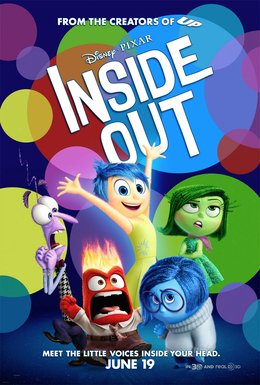
Where: Festival Hall in Red Deer (attached to the side of the Memorial Centre)
What’s the cost: Free
What Movie: Inside Out
What’s provided: Popcorn, pizza (gluten-free pizza as well), fruit, vegetables, coffee, juice, water.
Who: You and your family
Please RSVP to central@autismalberta.ca so we know how much food to bring. We ask that parents ensure their children do not climb on the stacked chairs against the wall for safety purposes.
Please also let us know if you are interested in volunteering with set up and clean up.
The Complex Art of Gentle Education
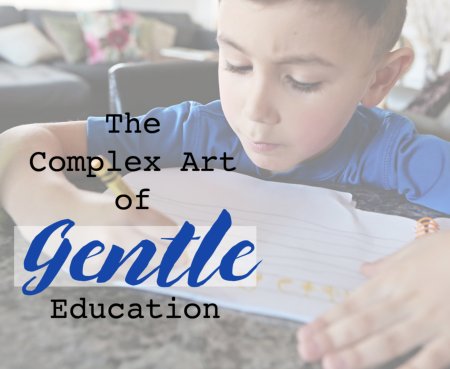
I looked down at my son and smiled to hide the grimace on my face while she repeated the words she had just said.
 Trying to find a balance between kind subtleness and informative firmness is a tremendously difficult task – especially when it comes to your child. I would love to say the walls of my home were decorated with stories of ‘subtle successes’ – but I’m afraid this isn’t the case. In fact, our home is more of a metaphorical gallery of disasters in the way of gentle education. More times than I can count my ‘gentle’ delivery has been mistaken as aloof, setting the timer of a slowly ticking bomb. As the ‘notliments’ continue to pile up, my mommy-bomb starts ticking more quickly and before you know it, an unimaginable blast has professionals sifting through scattered paperwork and nursing ringing ears.
Trying to find a balance between kind subtleness and informative firmness is a tremendously difficult task – especially when it comes to your child. I would love to say the walls of my home were decorated with stories of ‘subtle successes’ – but I’m afraid this isn’t the case. In fact, our home is more of a metaphorical gallery of disasters in the way of gentle education. More times than I can count my ‘gentle’ delivery has been mistaken as aloof, setting the timer of a slowly ticking bomb. As the ‘notliments’ continue to pile up, my mommy-bomb starts ticking more quickly and before you know it, an unimaginable blast has professionals sifting through scattered paperwork and nursing ringing ears.News from Autism Edmonton
Welcoming Our New Executive Director
 It is with great excitement that we announce the appointment of Carole Anne Patenaude as the new Executive Director for Autism Edmonton.
It is with great excitement that we announce the appointment of Carole Anne Patenaude as the new Executive Director for Autism Edmonton.Thanking Our Outgoing Executive Director
 On behalf of the Board of Directors of Autism Edmonton, I want to express our profound gratitude to our outgoing Executive Director, Dr. Hendriatta Wong.
On behalf of the Board of Directors of Autism Edmonton, I want to express our profound gratitude to our outgoing Executive Director, Dr. Hendriatta Wong.Board President, Autism Edmonton
Autism Edmonton’s 2016 Autism Awards – Call for Nominations
 Coming up this spring, Autism Edmonton will be hosting its annual Autism Awards!
Coming up this spring, Autism Edmonton will be hosting its annual Autism Awards!Autism Canada Update
The new amalgamated Autism Canada was thrilled to host our first face-to-face Provincial and Territorial Council meeting on November 27 and 28, 2015 in Toronto, Ontario. What emerged from these two days was an excitement to work together in a collaborative manner to expand best practices across the country. In this inaugural event, four key areas were identified as priorities: Advocacy, Fundraising, Outreach Programs and Operation/Governance. By sharing amongst our collective, we aim to improve services and supports coast to coast in a cost-effective and timely manner while developing and expanding our council membership. We are thrilled to be in a position to explore a National Fundraising Event and an Autism Acceptance and Awareness Event that each council member can take pride in.
Since our November meetings, Autism Canada has accepted over 30 applications from adults on the spectrum to join our ASD Advisory Committee. We have had a few conference call meetings to introduce several initiatives focused on bringing adults together to share their voice at the national level. We have launched ASD Central – Canada’s Online Forum for Adults on the Spectrum and already have a significant membership and several conversations engaged. More recently we have started planning our first adult autism conference. This is a truly unique event organized by adults on the spectrum, for adults on the spectrum. .
Laurie Mawlam, Autism Canada’s Executive Director, has been to several meetings to advance federal initiatives through her role as Board Member of the Canadian Autism Spectrum Disorders Alliance (CASDA) and as part of the Working Group Committee for the Canadian Autism Partnership (CAP). More details will be shared as information becomes available.
This year will prove to be another exciting one for Autism Canada as 2016 marks our 40th anniversary. We will take this time to reflect on the accomplishments, and carve our path for the future. Our substantial history brings great responsibility and we will continue to work on behalf of every Canadian living with autism and their families. Our reach has never been bigger. Our social media has expanded to over 23,000 likes, followers and subscribers. If you want to be a part of this conversation, please visit our website autismcanada.org to find out how.
The Power of Sport and Exercise
Erika Rowden
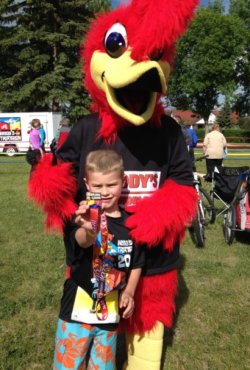
The right activity regulates him and this allows him to socialise with others. The wrong one results in frustrations, meltdowns and behaviours seeking that crash/bang sensation to press his ‘reset’ button.
 We are so fortunate to live in Red Deer, where there is so much on offer. I cannot thank his coaches enough for supporting him and including him. The Adapted Aquatics program at GH Dawe allows him to be a part of a swim group class, and he has also gotten involved in basketball and rugby. After each of these activities, he is so calm. To see a big smile on his face and hear the words ‘that was awesome, I love it’, just says it all. Through these sports he has learned to be a part of a group, follow instructions and be a team player. He has also participated in two kids’ triathlons, and the support we received was fantastic. He can now tell me what activity interests him.
We are so fortunate to live in Red Deer, where there is so much on offer. I cannot thank his coaches enough for supporting him and including him. The Adapted Aquatics program at GH Dawe allows him to be a part of a swim group class, and he has also gotten involved in basketball and rugby. After each of these activities, he is so calm. To see a big smile on his face and hear the words ‘that was awesome, I love it’, just says it all. Through these sports he has learned to be a part of a group, follow instructions and be a team player. He has also participated in two kids’ triathlons, and the support we received was fantastic. He can now tell me what activity interests him.Autism Edmonton and the Autism Research Centre 2016 Graduate Student Pilot Grants

The 2016 Graduate Student Pilot Grants will support individuals conducting graduate research in any field related to Autism Spectrum Disorders to begin May 2016. These Scholarships are jointly funded by Autism Edmonton, and the Autism Research Centre at the Glenrose Rehabilitation Hospital (affiliated with Alberta Health Services and the University of Alberta). Each pilot grant (maximum $5,000.00) is to be applied towards the operating costs of the successful applicants’ graduate research project. Applications will be judged on the quality and originality of the proposed project, and on the potential of the research to contribute to the well-being of persons with ASD and their families. Each successful applicant will provide a written progress report at 6 months and a final report and presentation of study findings at the conclusion of the project.
We Want to Hear From You!
Leading the Way to Promoting Self-Determination of Individuals with Autism Spectrum Disorder

Would you be willing to talk about your experience of self-determination?
The Centre for Autism Services Alberta is sponsoring a study to identify new practices to promote the self-determination of individuals with autism spectrum disorder.
Self-determination is “people controlling their own lives and their own destinies” (Wehmeyer & Schwartz, 1998, p. 76). Greater self-determination is linked with higher quality of life in individuals, including those with autism spectrum disorder (Shogren, Wehmeyer, Palmer, Rifenbark & Little, 2015; Wehmeyer, 1999; and Wehmeyer and Schwartz, 1998).
Why: To determine ways for the Centre for Autism Services Alberta to promote the self-determination of people with autism spectrum disorder ASD.
Who: Independent adults with ASD (or Asperger’s syndrome)
What: Participate in a 30 to 45 minute interview to share your stories related to your own self-determination. What has helped you to be self-determined? What has hindered your self-determination?
How: Interviews can take place face-to-face in a location that is comfortable for you, or through email, or via Skype. Reasonable expenses to participate may be reimbursed (e.g. parking costs).
For more information contact:
Jackie Ryan, Master of Arts in Leadership Student at Jackie.2ryan@royalroads.ca
Key Elements of Integrated Transition Planning
Family Support for Children with Disabilities (FSCD) and partnering Human Services programs (Persons with Developmental Disabilities, Assured Income for the Severely Handicapped, Office of the Public Guardian and Trustee, Alberta Works) are committed to assisting youth and their families with planning for the future, coordinating access to programs and services they are eligible for, and supporting youth in reaching their full potential.
Alone and Unchanging: Kanner’s Enduring Legacy of Social Isolation
Candace Ford-Taperek
 In 1943, an Austrian-born doctor from the Johns Hopkins Psychiatric Clinic in Baltimore published a preliminary report lucidly describing 11 children with a unique and seemingly rare disorder. He constructed his ideas based on five years of clinical observations and detailed parent reports. Autistic Disturbances of Affective Contact was Leo Kanner’s seminal article outlining the distinct characteristics of a condition which is now classified in the fifth edition of the Diagnostic and Statistical Manual of Mental Disorders (DSM-5) as autism spectrum disorder (APA, 2013).
In 1943, an Austrian-born doctor from the Johns Hopkins Psychiatric Clinic in Baltimore published a preliminary report lucidly describing 11 children with a unique and seemingly rare disorder. He constructed his ideas based on five years of clinical observations and detailed parent reports. Autistic Disturbances of Affective Contact was Leo Kanner’s seminal article outlining the distinct characteristics of a condition which is now classified in the fifth edition of the Diagnostic and Statistical Manual of Mental Disorders (DSM-5) as autism spectrum disorder (APA, 2013).Discovering Potential: Customized Employment Seminar
Click the image to download the full-sized poster
Discovering Potential: Customized Employment
The building blocks of customized employment and self employment involve a systematic means of exploring a person’s gifts and talents in return translating this into meaningful employment. Families with individuals with barriers have an opportunity to explore these strengths, needs and interests of their son or daughter.
“Customized employment means individualizing the employment relationship between employees and employers in ways that meet the needs of both.”
The Discovering Personal Genius (DPG) process blends the best of what we know about person-centered assessment, good employment development, and innovative thinking into a road map for action.
Join others in this informational evening who wish to discover potential opportunities in customized employment. This evening is open to families who are exploring options for the future.
When: February 2, 2016
Time: 7:00—9:00 PM
Place: Foothills SNAPS Boardroom (Front), 123-4th Ave SW, High River, AB
Cost: Free
RSVP: No later than January 22/16 (space limited) to event@foothillssnaps.org or call 403-603-3232
Brought to you by:
- Community Futures Alberta — Entrepreneurs With Disabilities Program
- Work a Day in My Shoes:
- Foothills SNAPS
- Literacy for Life
